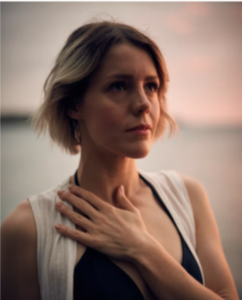When we think of virtues, we usually think of the classics: wisdom, compassion, humility, patience, fortitude, courage, kindness, gratitude, and the like. But there are a number of underrated, less-discussed virtues that are vitally important in creating a good life. One that rarely makes the top-ten lists is curiosity. When it comes to virtues, curiosity gets short shrift and sometimes has to defend its right to even identify as a virtue. But curiosity deserves our recognition and a place on the greatest-hits list of virtuous qualities. Not only is it vitally important for creating a good life, but also for maintaining lasting love relationships.
At the beginning of a romantic relationship, we feel effervescent—alive, awake, and grateful. We are catapulted into a state of mystery and adventure, a process of discovery: getting to know a new person, and who we are with this other person. It feels as if we are in direct contact with the present moment; we are here, in the now, in our senses, and in what’s unfolding. We’re living on the edge of something wild and unknown, without a sense of where life is taking us. What a lovely time it is, the beginning of a relationship.
As time passes, however, we move from the getting to know our partner stage of the relationship to thinking we already know our partner. As a result, the aliveness and sense of curiosity we felt at the beginning of the relationship starts to wane. Simultaneously, we feel less present and awake, less in our senses, and less tuned into the mystery of life. Sadly, we often feel less appreciation, interest, and excitement for our partner as well.
There are few things more deadening to a relationship than the fading of curiosity. But this is what happens over time: Curiosity in our partner dwindles and dies. We construct a narrative in our head that explains who they are and why they do what they do, which then locks them into a fixed and unchanging identity—of our construction. Our partner becomes a known quantity and we stop actively getting to know them; we assume we already know them. Sometimes, in the ultimate indignity, we imagine that we know our partner better than they know themselves.
When curiosity dies, we stop inquiring and listening to our partner, which are the fundamental elements in a loving (and growing) relationship. We stop paying attention to our partner in that exquisite way we do when we are getting to know someone new. Curiosity is a way of saying, I’m interested in you. No matter how long I’ve known you, I’m still interested in you; I want to know you and who you’re becoming. Regardless of how long we’ve known our partner, in truth, we may not have known them for a long time, since we stopped being curious about them. In fact, we may have long been interacting with an idea of them that existed only in our mind.
When we inquire into our partner’s thoughts, wishes, experience, truth, feelings, and all the rest, and genuinely listen to the answers, we are really saying, you matter to me. Our curiosity is the most loving gift we can give our partner. When we remove our curiosity, we remove our love.
At the same time, our curiosity invites our partner to be curious about themselves; we make them a destination, which encourages them to make themselves a destination. Curiosity gives our partner an invitation to pay attention to themselves in the present moment. Our interest sparks their interest—in themselves—and as such, is an act of love.
Finally, when we practice curiosity, we’re confirming that we see our partner as someone in a process of changing and becoming. Our curiosity gives them the opportunity to define and redefine who they are in each moment—to keep becoming. It says that we are open to meeting an ever-evolving incarnation of them, and that we don’t see them as a finite or fixed product, defined, limited, and condemned by what has come before. It gives them permission to not have to be who they were yesterday or even 10 minutes ago. Our curiosity is generous in spirit; it says, Yes, I will meet you, as you are now, let the past be over, and freshly discover who you are in this moment. When we withdraw curiosity, we deprive our partner and the relationship of the possibility for evolution. Removing curiosity is like removing oxygen; eventually the relationship will stop growing and lose its fundamental vitality.
But knowing is seductive; when we decide that we know another person, that there’s nothing new for us to discover, it feels safe. We feel in control with all the answers. But with control comes staleness. Curiosity is the antidote to staleness. Curiosity puts the questions back in the relationship, and consequently, the life force.
“The only true wisdom is in knowing we know nothing,” said Socrates. Curiosity is the practice of not knowing. It is saying to our partner, I don’t know the answers; I don’t know what’s true; I don’t know who you are today. Teach me. (even if I’ve “known” you for decades).
In fact, when we practice curiosity, we’re doing something brave. Real curiosity can feel unfamiliar and even scary. “I don’t know,” for most of us, is not a comfortable admission or place to reside. It means letting go of the control and safety that we imagine comes with knowing. Simultaneously, it asks that we surrender the identity of the one who knows, an identity we think brings us power, and security. By allowing ourselves to not know, we’re practicing another virtue: humility. We’re allowing ourselves to be vulnerable—not in control. As it turns out, the virtue of curiosity is a breeding ground for other important virtues as well.
So, how then do you build this virtue of curiosity that breathes life and love into our relationships? The answer is simple; you build curiosity in the same way you build any other virtue or skill: You practice it, one moment at a time, one day at a time. You build curiosity by being curious.
- Set an intention to be curious: Remind yourself when you wake up, and throughout the day, to practice being curious. Look for small and big ways to practice curiosity in your daily life.
- Contemplate the value and larger purpose of curiosity in your life (and relationship). Consider what’s important to you and why you want to develop and enhance this virtue in yourself.
- Be curious—just do it. Practice curiosity!
- Pay attention to what happens when you’re curious — in the relationship, in your partner, and in yourself.
The best day to start being curious is today, even if you never tell a soul that you’re doing it. Start paying attention to your partner with an open mind, asking questions, listening to the answers, and letting them teach you who they are, no matter how well you think you know them. Maybe they’ve changed since you decided who they are: It’s possible. When you’re learning to practice curiosity, it helps to remind yourself to speak less and listen more. Put simply, take the cotton out of your ears and put it in your mouth.
Being curious is not just about asking questions, however; it’s about accepting that we’re not the keeper of the answers, and that our truth is not The Truth. We inquire into another person’s experience with an open heart and mind; we initiate a journey and let the other person lead us, hopefully, far from our mind’s well-worn path. So too, curiosity is not about asking questions in order to correct the answers, or for that matter, waiting for our turn to speak again. True curiosity requires a willingness to inquire into another person’s experience without any expectation or agenda. This is not just curiosity, it’s love.
But curiosity is not just a virtue, it’s also a skill. As such, it takes time to build and is born out of small moments, over time. Don’t expect yourself to suddenly wake up and feel curious about the partner you’ve lived with for years. Just keep setting the intention and holding curiosity in your mind and heart. Simultaneously, become curious about what curiosity engenders in your relationship—and in you. Remind yourself that curiosity is a virtue you want to build. Get in the habit of asking questions and really listening to the answers—assuming that you don’t know. As best you can, meet your partner each day as if you were meeting them for the first time.
Remind yourself that getting to know your partner is a lifelong journey without a destination, an ongoing, evolving knowing.
In the same way that riding a bicycle takes time to learn, but is so much fun when you get the hang of it, and can take you to such interesting places, so too, living with curiosity takes time to get the hang of, but ultimately is a joyful choice, one that will take you to new places in your relationship and your life.


